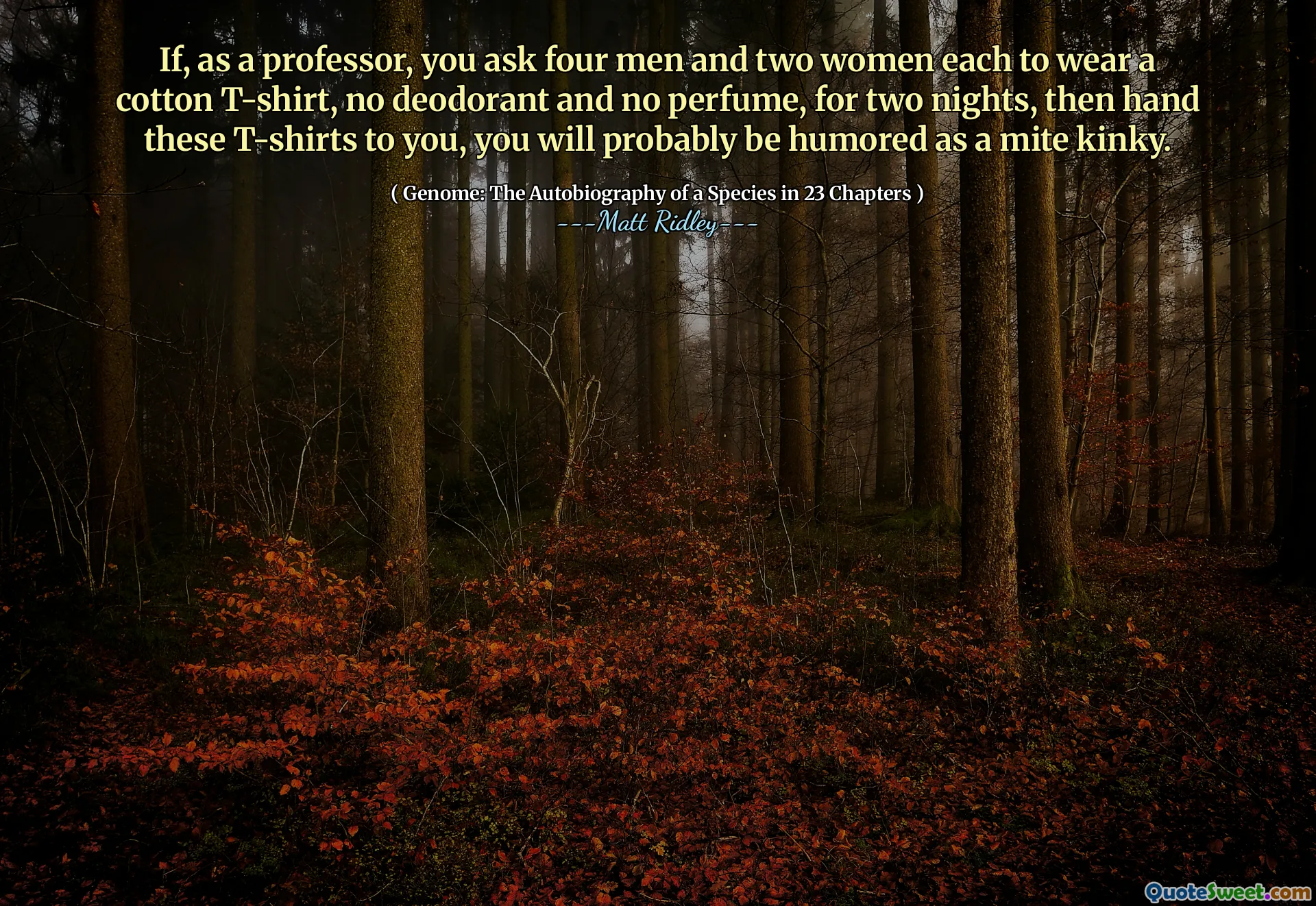
If, as a professor, you ask four men and two women each to wear a cotton T-shirt, no deodorant and no perfume, for two nights, then hand these T-shirts to you, you will probably be humored as a mite kinky.
This quote highlights the subtle complexities of human social behaviors, perceptions, and cultural norms. The scenario described—asking individuals to wear minimalistic, unadorned clothing with no cosmetic scents—serves as a provocative test of societal expectations regarding cleanliness, hygiene, and personal boundaries. It questions how unusual or 'kinky' such an action might seem, even though at its core, it is a straightforward request related to consent and natural human scent. The underlying message emphasizes how cultural conditioning influences our perceptions of normalcy and 'kinkiness.' For instance, in many Western societies, personal hygiene is heavily associated with cleanliness and social acceptability, often including perfumes or deodorants. When those social signals are stripped away, discomfort or perceptions of abnormality may surface, revealing biases or the constructed nature of our notions about body odor and personal scent. The quote also subtly reflects on gender dynamics, referencing both men and women, and how societal expectations are not solely gender-specific but shared across genders in social settings. The humor and potential embarrassment that might arise from such an experiment can reveal much about individual and collective attitudes towards natural human differences. Ultimately, Ridley's quote reminds us that our perceptions of what is acceptable or taboo can be deeply ingrained and often arbitrary, shaped by cultural conditioning rather than inherent moral or hygienic truths.






